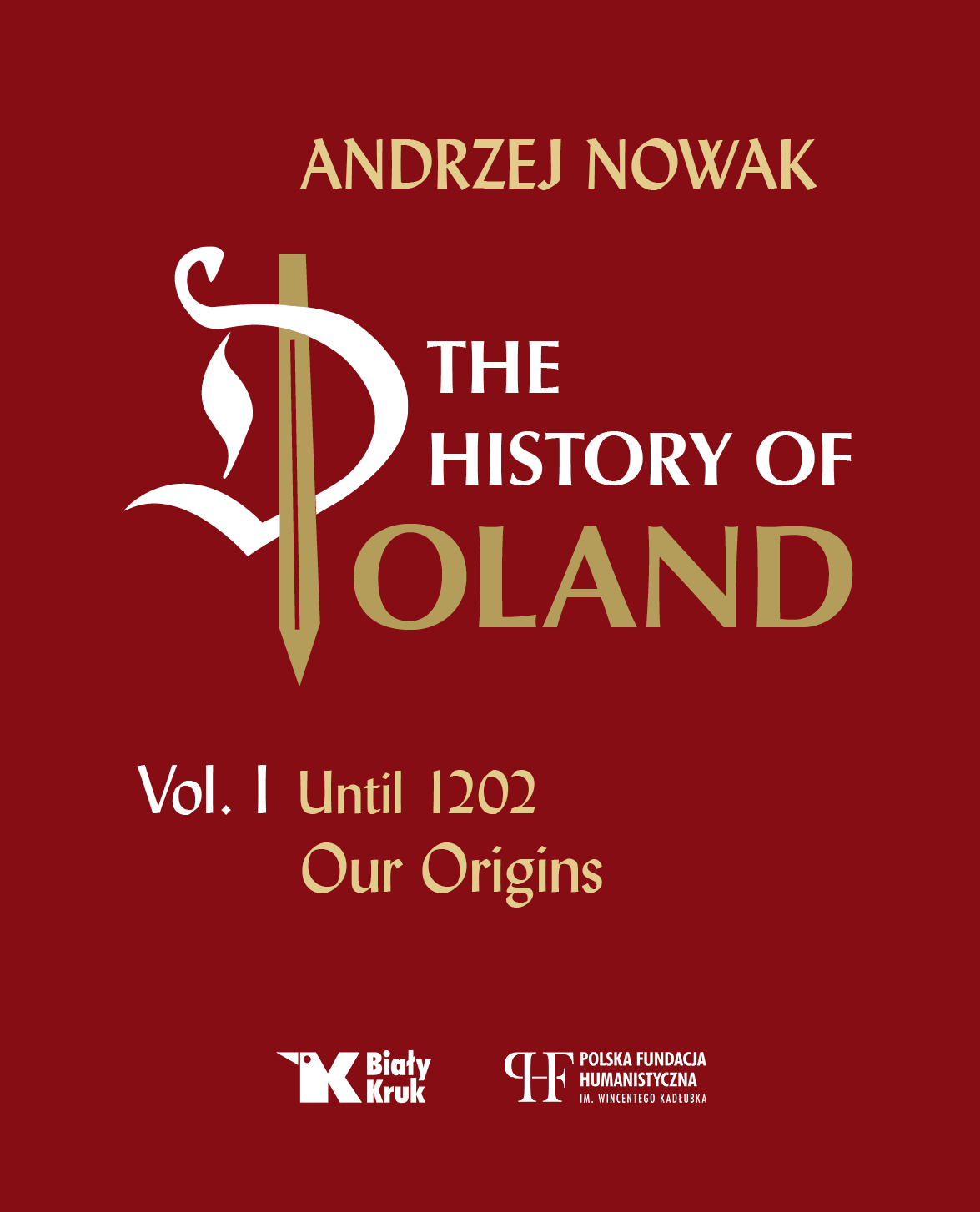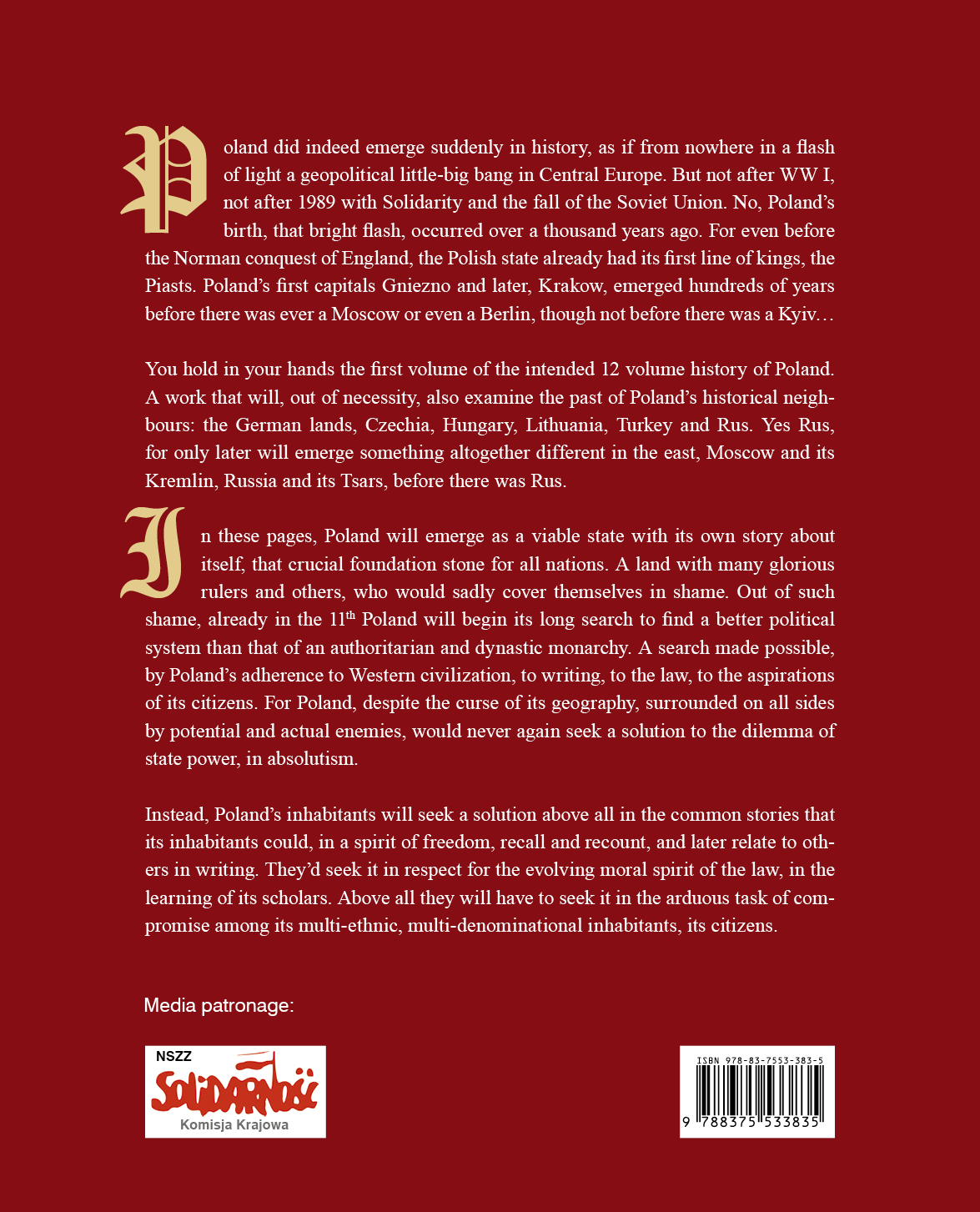The History of Poland - t. 1
When did Poland emerge as a state? Is it a European country? Why is there so much discord among Poles? Arguments about who they are? Where they came from? What do they represent? Is Poland no more than a mere transit land between the great eternal German and Russian civilisations …. ? These seem to be some of the common questions often asked now in the West when anyone thinks of Poland. It is somehow, a land unknown, a land of mystery, perhaps a land of legend, or is it a land of darkness?
Poland did indeed emerge suddenly in history, as if from nowhere in a flash of light a geopolitical little-big bang in Central Europe. But not after WW I, not after 1989 with Solidarity and the fall of the Soviet Union. No, Poland’s birth, that bright flash, occurred over a thousand years ago. For even before the Norman conquest of England, the Polish state already had its first line of kings, the Piasts. Poland’s first capitals Gniezno and later, Krakow (my home), emerged hundreds of years before there was ever a Moscow or even a Berlin, though not before there was a Kyiv…
You hold in your hands the first volume of the intended 12 volume history of Poland. A work that will, out of necessity, also examine the past of Poland’s historical neighbours The German lands, Czechia, Hungary, Lithuania, Turkey and Rus. Yes Rus, for only later will emerge something altogether different in the east, Moscow and its Kremlin, Russia and its Tsars, before there was Rus.
In these pages, Poland will emerge as a viable state with its own story about itself, that crucial foundation stone for all nations. A land with many glorious rulers and others, who would sadly cover themselves in shame. Out of such shame, already in the 11th Poland will begin its long search to find a better political system than that of an authoritarianism and dynastic monarchy. A search made possible, by Poland’s adherence to Western civilisation, to writing, to the law, to its citizens. For Poland, despite the curse of its geography, surrounded on all sides by potential and actual enemies, would never again seek a solution to the dilemma of state power, in absolutism.
Instead, Poland’s inhabitants will seek a solution above all in the common stories that its inhabitants could, in a spirit of freedom, recall and recount, and later relate to others in writing. They’d seek it in respect for the evolving moral spirit of the law, in the learning of its scholars. Above all they will have to seek it in the arduous task of compromise among its multi-ethnic, multi-denominational inhabitants, its citizens. First among such citizens in this volume will be Master Vincentius or 'Kadłubek\’ (the Hull) the historian. A man whose tales would henceforth keep the Poles forever afloat in the eternally turbulent waters of Central and Eastern Europe.
388 pages, ISBN 978-83-7553-383-5

